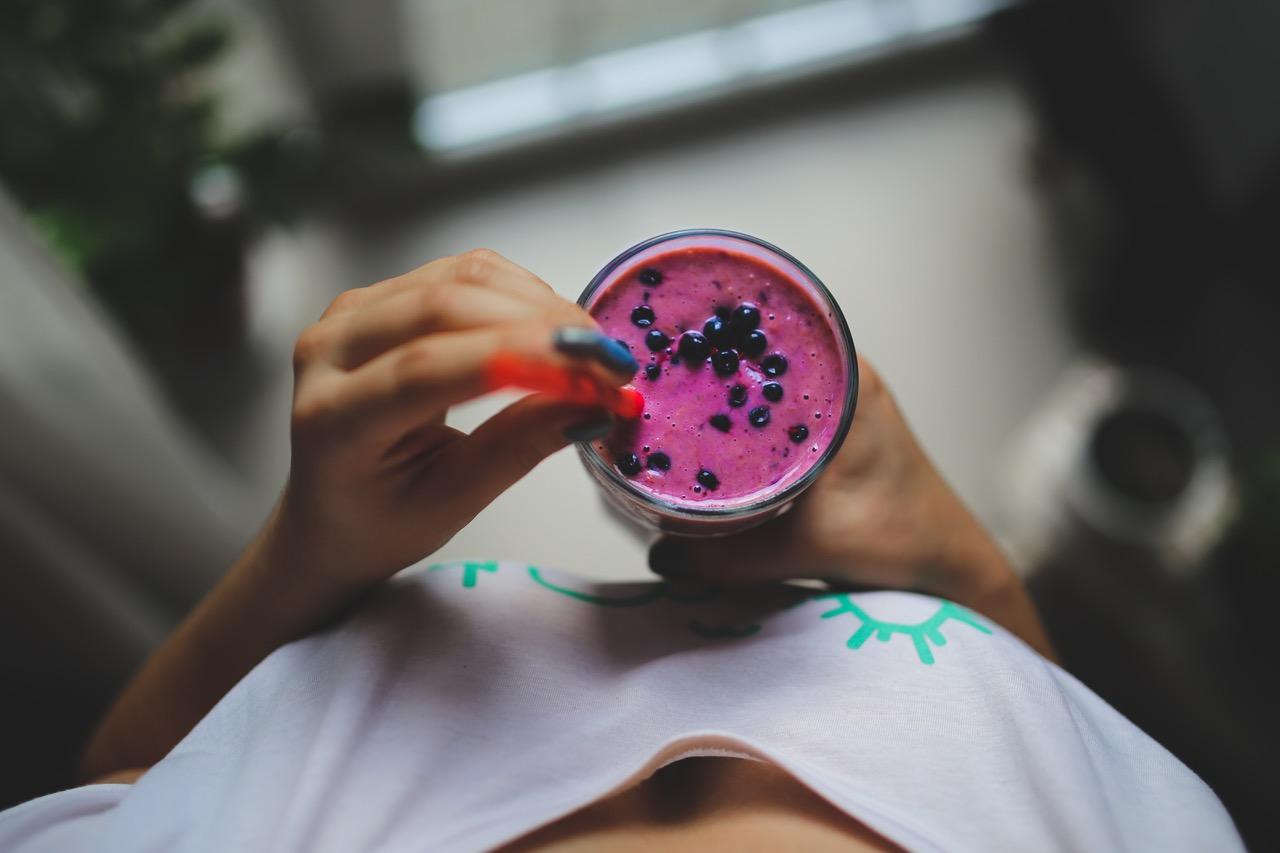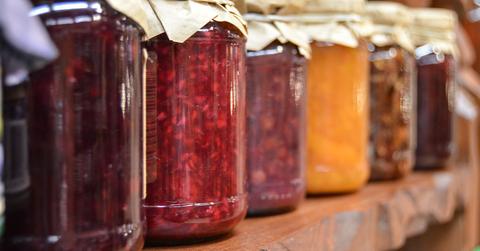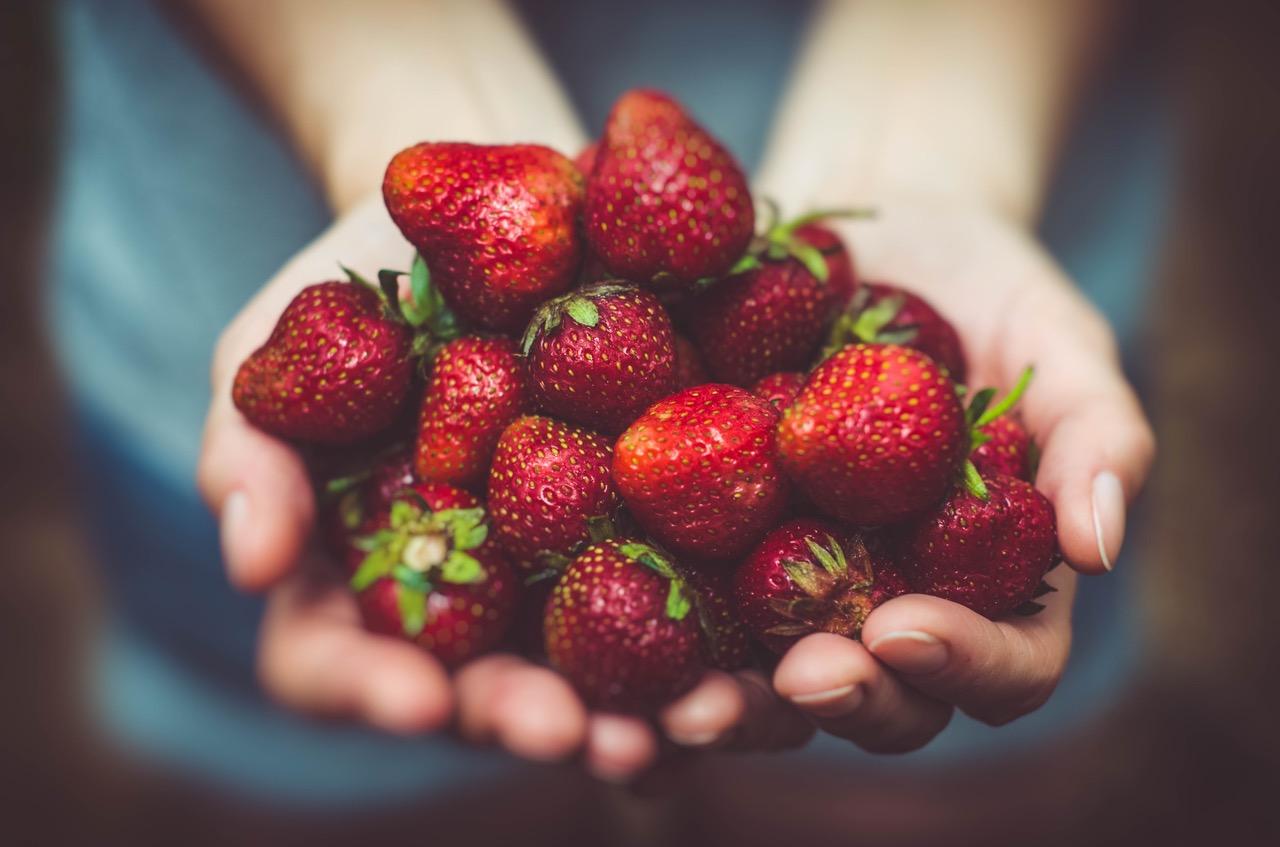5 Easy Food Preservation Methods That Can Save You Hundreds
Americans toss about 80 billion pounds of food into the garbage every year. Luckily, there are several easy preserving methods anyone can use to extend the shelf-life of the perishable food they buy, saving both money and the planet.
Updated April 13 2020, 11:36 a.m. ET
With COVID-19 lockdowns, so many people are buying larger grocery hauls than usual during their limited trips to the grocery store. It's definitely a privilege to be able to have a fully-stocked fridge right now — but with surplus groceries often comes surplus food waste.
Now is not the time to be wasting food — so we've rounded up a few helpful food preservation methods to keep various foods edible and delicious as long as possible.
Fortunately, many of us have stocked up on shelf-stable goods, such as canned foods, dry beans, and grains, all of which can last in the pantry (even better if loose or bagged items are transferred to airtight containers) for years at a time. What can be trickier during coronavirus quarantines is eating your produce and leftover meals before it goes bad. And not only will preventing your food from going to waste, but it will also help save you money.
Food waste costs Americans money
Americans toss about 80 billion pounds of food into the garbage every year. Broken down by household, that’s about $640 worth of food annually, or roughly 16% of the food we pay good money for.
Even if we’re composting (we’re all composting, right?), that’s an enormously high level of food we intended to eat that we’re not. And a lot of that is due to the food going bad before we can shovel it into our mouths. But even if you can’t find your way around a kitchen, there are several very easy preserving methods anyone can use to extend the shelf-life of the perishable food. Here are a few of them.
Freeze your leftovers
There are lots of foods that can go directly into the freezer so long as they’re in containers that won’t shatter in the cold or subject your food to freezer burn. Pasta sauces, meats, breads and just about any faux meat or tofu all freeze perfectly and lose nothing by way of flavor or nutrition through the defrosting process.
Fresh foods like fruit and vegetables can be prepared all at once, and you can just go ahead and freeze your leftovers. Same is true for cooked pasta like penne, ravioli, mac ‘n’ cheese and even spaghetti, and other dishes like shepherd's pie and mashed potatoes.
Also, don’t be turned off by pre-frozen produce. Little is lost nutritionally through the freezing process, and it’s a surefire way to not accidentally stick your hand into a refrigerator drawer and right through a turned box of strawberries. For those of you who are growing your own food (bravo!), just about any vegetable can be frozen so long as you blanch it first.
Can your excess produce
Canning seems intimidating to a lot of people, but it’s one of the simplest—and oldest—methods of food preservation. Whether you take your almost-spoiled fruits and boil them all down in a pot for jam, turn those cucumbers to pickles or want to show off with homemade sauerkraut at your buddy’s next barbecue, canning is relaxing, hard to mess up, and requires very few ingredients.
Turn your kitchen scraps into vegetable stock
Broth is one of the easiest things on the planet to make, yet most people buy store-bought for their pastas, soups and stocks. All it takes to make your own vegetable broth are food scraps from produce you’re already cutting up, like celery, onions, carrots and spices. Peels, skins and ends of these veggies can all be tossed into a bag you keep in your freezer. When the bag’s full, just boil its contents in water (1:2 ratio of veggies to water usually works )for 45 minutes, strain the broth to separate it from the food scraps, and freeze it in a bag, ice cube tray or Tupperware for later use.
Buy a blender
When in doubt, all your greens, fruits, and many veggies can go right into your blender when they start going soft to be turned into smoothies. If you keep a few things on-hand in the freezer (a few fruits, chopped spinach), you'll always be ready to make a healthy breakfast with the tail end of what's left in your produce drawer.

Learn to store your food properly
Odds are, most of the food you end up throwing away turned prematurely because you didn't take care of it properly. It's vital that you get the right container for the job at hand, and that you know where (and how) to keep things so they don't rot before you can get to them.
There are all kinds of tricks for this, but here are a few of my favorites.
The best way to prevent contracting or spreading coronavirus is with thorough hand washing and social distancing. If you feel you may be experiencing symptoms of coronavirus, which include persistent cough (usually dry), fever, shortness of breath, and fatigue, please call your doctor before going to get tested. For comprehensive resources and updates, visit the CDC website. If you are experiencing anxiety about the virus, seek out mental health support from your provider or visit NAMI.org.

